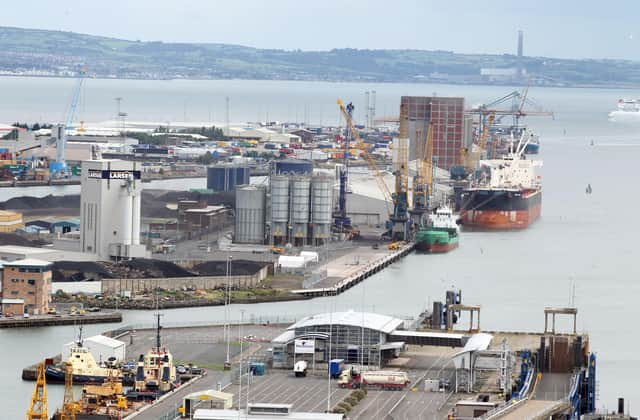‘Potent threat’ to stability and prosperity in NI due to Brexit uncertainty, Lords Committee warns


Businesses in Great Britain could decide it is economically unviable to continue operations across the Irish Sea unless flexibility is shown in the EU negotiations, a House of Lords committee warned.
The country will have to follow EU rules on agriculture and manufactured goods, ensuring access to its single market and keeping the border with the Republic of Ireland free-flowing in a key concession maintaining a decades-old peace.
Advertisement
Hide AdAdvertisement
Hide AdThe group of peers said: “The combination of uncertainty, lack of momentum and lack of time, compounded by the shock of the Covid-19 pandemic, is a potent threat to economic prosperity and political stability in Northern Ireland.”
The mechanism ensuring the country’s border with the Republic remains open after the Brexit transition period finishes at the end of this year is known as the Northern Ireland Protocol. The UK Government has said checks will be needed on some goods entering Northern Ireland from the rest of the UK.
Unless the joint committee of EU and British officials overseeing the process adopted a flexible definition of goods at risk of ending up in the Republic, checks and processes on those moving from Great Britain to Northern Ireland could have a “serious detrimental impact”, the House of Lords review added.
Its report said: “There is a real danger that businesses based in Great Britain could conclude that it is economically unviable to continue to operate in Northern Ireland, leading in turn to reduced choice and higher costs for Northern Ireland consumers, thus undermining Northern Ireland’s economic model, its future prosperity and, potentially, its political stability.”
Advertisement
Hide AdAdvertisement
Hide AdBefore the Covid-19 outbreak, Northern Irish businesses felt preparing for the protocol to become operational on January 1 next year was a Herculean task, the committee said.
“That task has become even more difficult, given the impact of Covid-19 on the economy and the capacity of individual businesses to cope with the problems confronting them.
“Given its refusal to countenance an extension to the transition period, the Government must urgently explain to Northern Ireland stakeholders the practical steps that will be taken to ensure the protocol is operational from January 1 2021.”